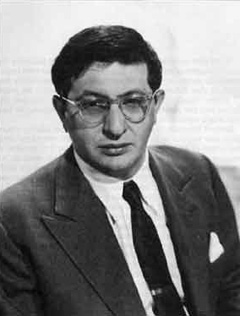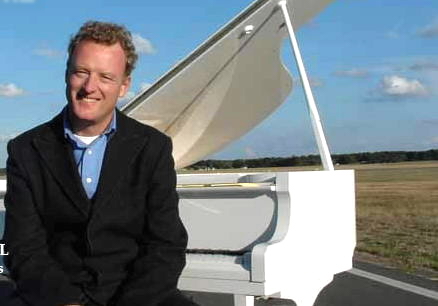BERNARD HERRMANN wrote some of the most famous film music of the twentieth century, from Citizen Kane to The Day The Earth Stood Still, Fahrenheit 451 to Taxi Driver. He is best known for his scores for Alfred Hitchcock, in particular the masterpieces Vertigo and Psycho. Herrmann completely transformed film music, dragging it out of its reliance on the sounds and textures of nineteenth century Vienna and into the modern age. Realising that each film is a one-off, and experimenting with new recording techniques and instruments, he completely re-wrote the rule book. Herrmann brought the orchestra up to date with imaginative and unprecedented musical textures and effects – his use of purely electronic instruments predate those of the classical pioneers Karlheinz Stockhausen & Edgar Varese. He used these new sounds to score a series of landmark films, from science fiction to horror to suspense. In doing so, Herrmann not only weaned the film audience off the Romantic music it was most familiar with. He introduced many of the most ‘difficult’ elements of mid twentieth century music to a mass audience, who accepted dissonance and even atonality because Herrmann cleverly adapted them to the needs of the drama. Psycho is not only the most imitated and admired film music ever. Its harsh, screaming dissonance was the very sort of music audiences had been turning their back on in concert halls. Thanks to Herrmann, they lapped it up, now in a popular form. Bernard Herrmann was consistently, brilliantly inventive, and he influenced every film composer who came after him. But he also influenced classical concert music. In his works are the seeds of the modern musical movement of ‘minimalism.’ Herrmann himself was ambivalent about his film success. He never received the respect he craved in the classical world. But he did more than anyone else to broaden the musical tastes of the public. Not in the concert hall, but in the crucible of the twentieth century’s own most important art form – cinema.
Howard Goodall on Bernard Herrmann (Part 1)
Howard Goodall on Bernard Herrmann (Part 2)
Howard Goodall on Bernard Herrmann (Part 3)
Howard Goodall on Bernard Herrmann (Part 4)
Howard Goodall on Bernard Herrmann (Part 5)
Howard Goodall on Bernard Herrmann (Part 6)
Also Check Out: Howard Goodall's 20th Century Greats: The Beatles
Tuesday, August 05, 2008
Howard Goodall's 20th Century Greats: Bernard Herrmann
Labels:
Bernard Herrmann,
Howard Goodall
Subscribe to:
Post Comments (Atom)




No comments:
Post a Comment